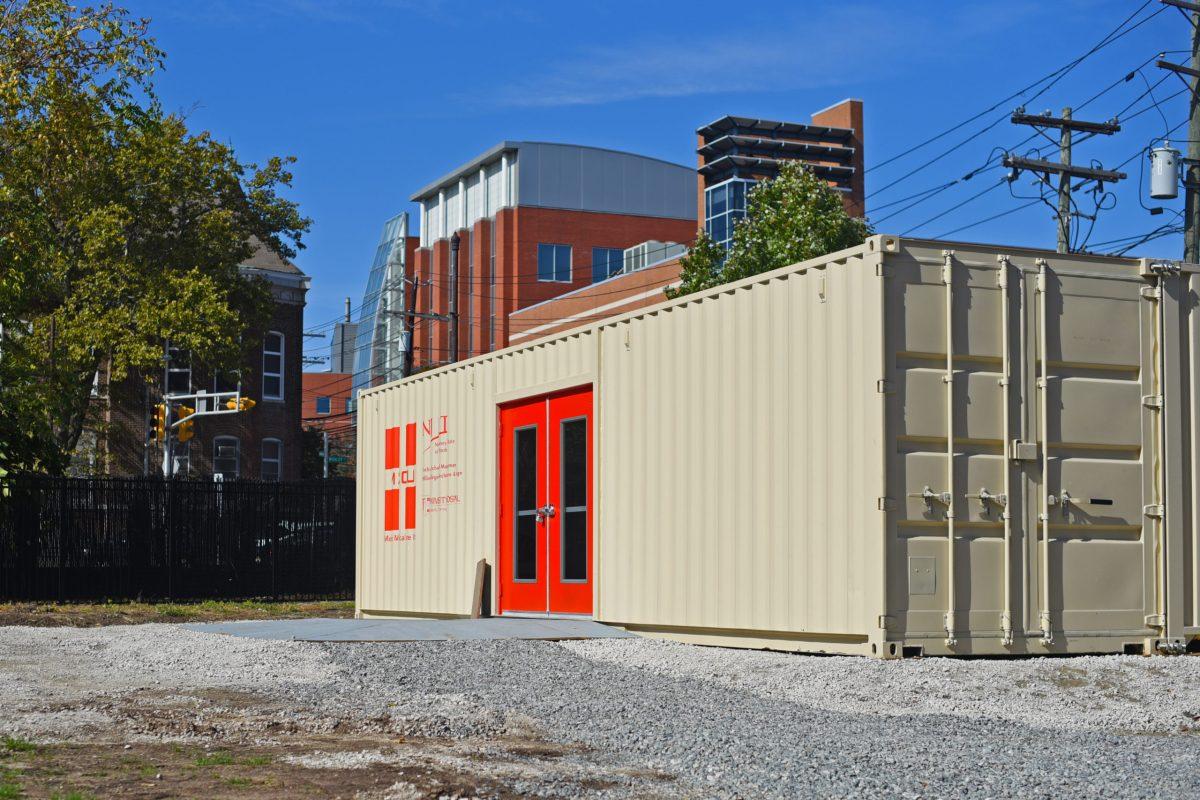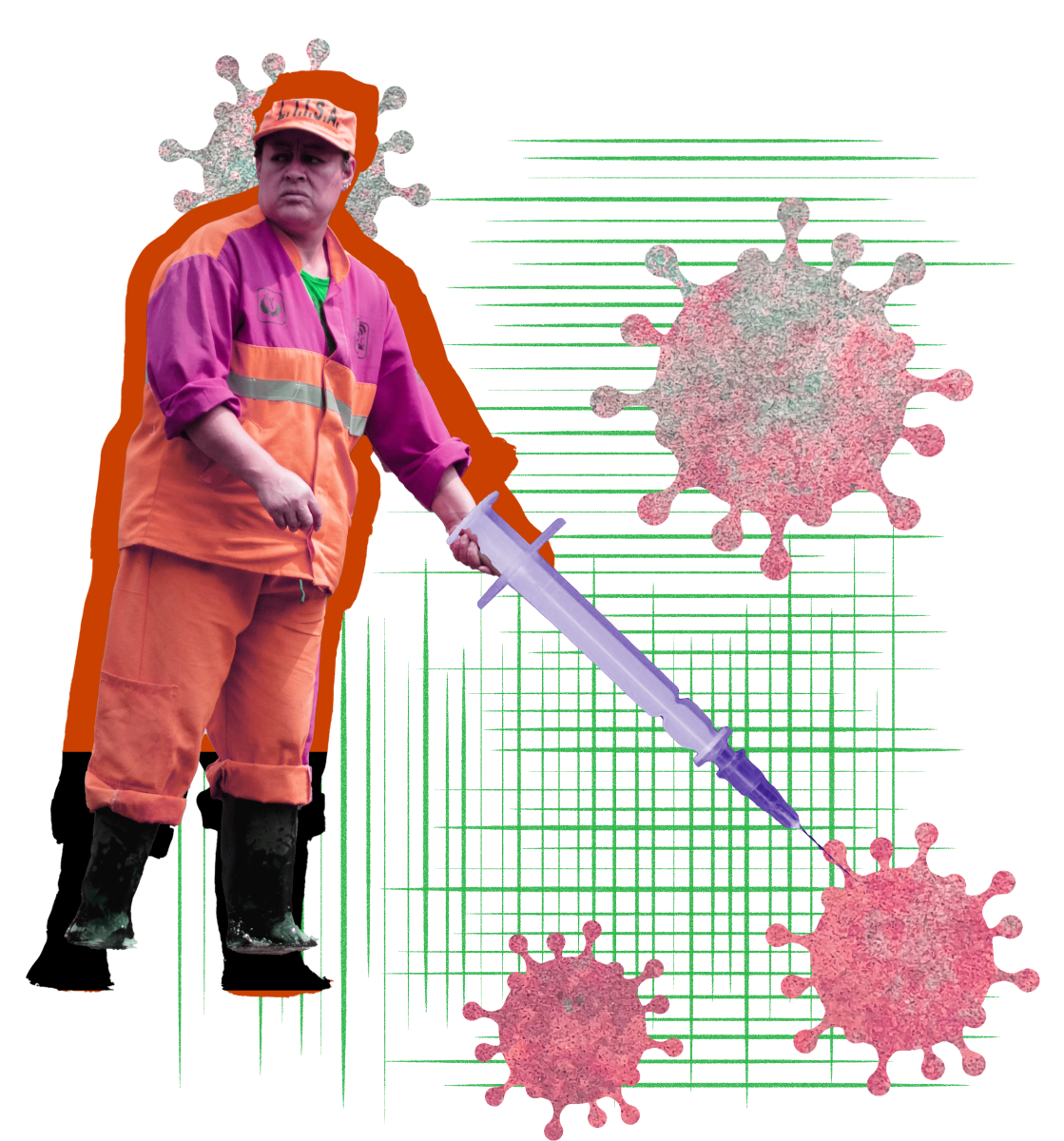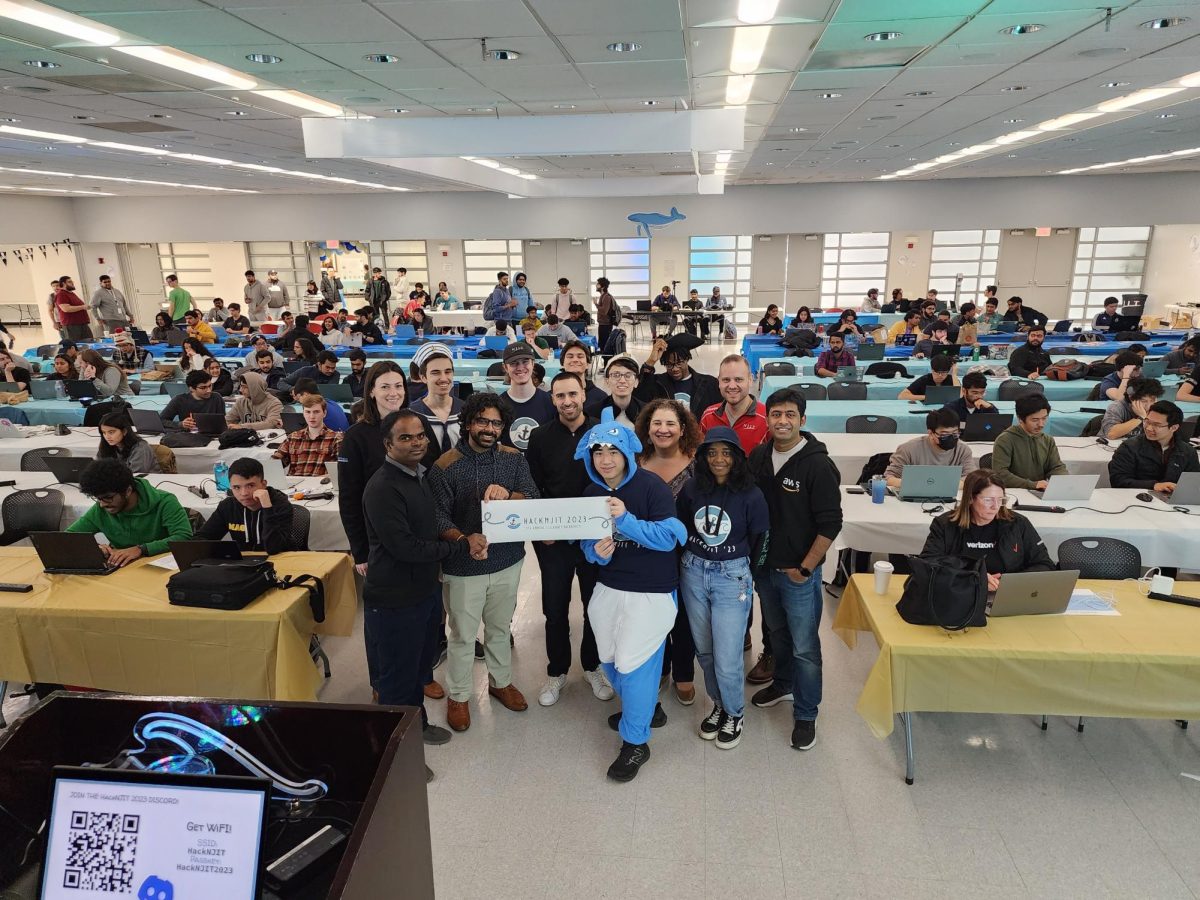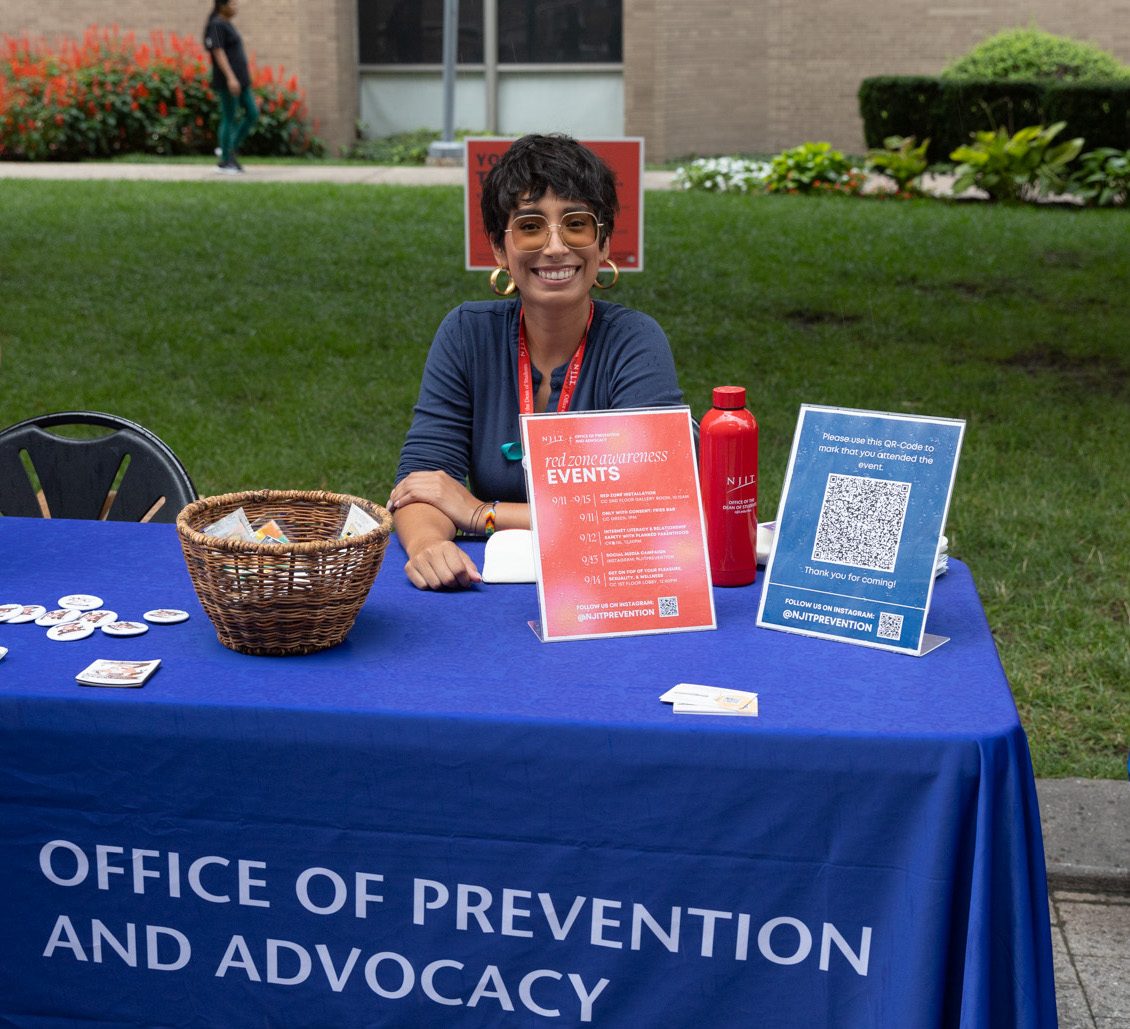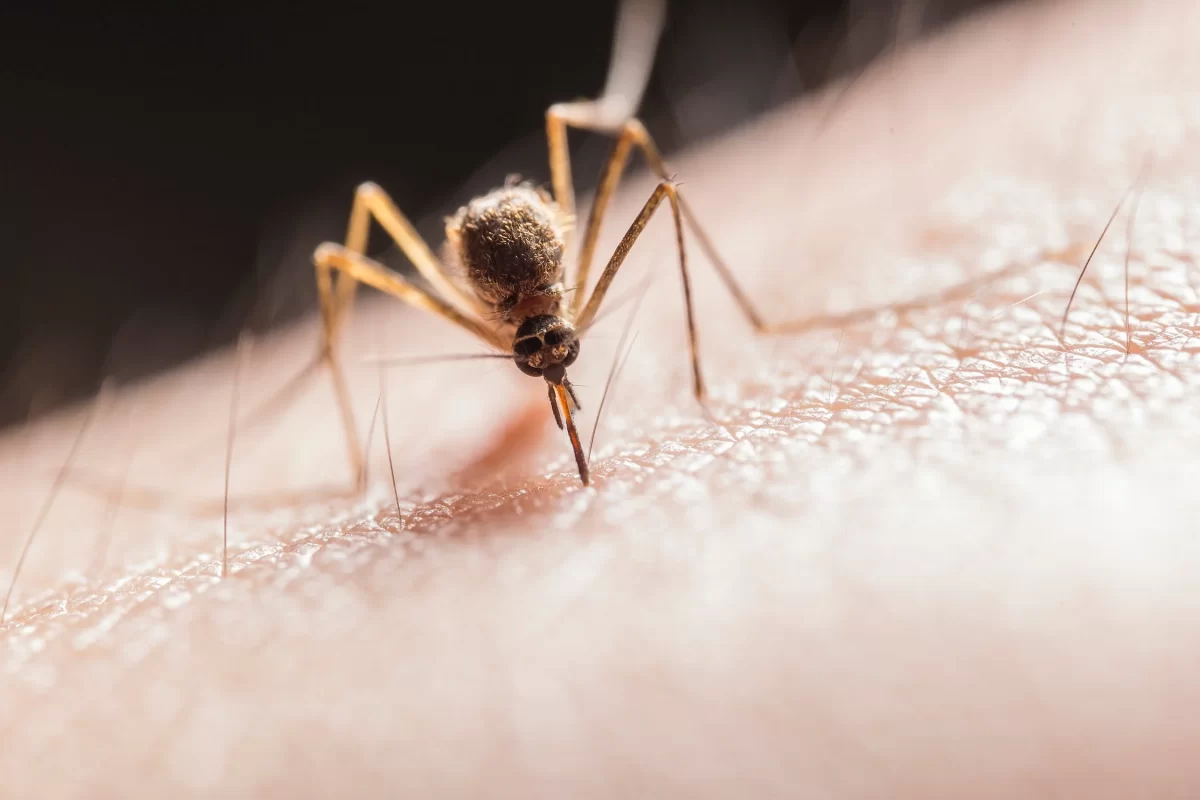Every week, a selection of NJIT students receive an email from the Office of Institutional Effectiveness. “In keeping with our commitment to the health and safety of the NJIT community, you have been selected for voluntary COVID-19 testing,” it reads. “Tests will be administered in the M2CU Unit, Corner of Warren & Lock Streets across from WEC and adjacent to the Honors College.” This location is no ordinary clinic – and COVID-19 is not all that is being tested.
The M2CU, or Mobile Medical Care Unit, is a standard shipping container repurposed for clinical operations that represents a unique collaboration between the healthcare, business and research communities of University Heights. It is designed to be highly transportable and provide versatile, modular “flex space” to hospitals, especially in times of crisis.
Work on the project began in early April when Martin Tuchman was inspired by an Italian-led effort to convert shipping containers to ICUs in Italy, which had its infrastructure devastated by the coronavirus. He reached out to experienced logistics executive and Martin Tuchman School of Management advisory board member Steve Rubin to spearhead the effort. “From there, we were able to get the attention and great support of the executive administration at NJIT, including Dr. Bloom and Dr. Deek. They introduced us to University Hospital, which is down the road,” said Rubin, who is also an adjunct professor at the Tuchman School.
The biggest advantage of using shipping containers is mobility. “The containers get delivered by a truck, come off the back end, the truck goes and all you have are the containers. It’s a very elegant and cost-effective solution for temporary healthcare infrastructure expansion,” said Rubin.
Partnerships with the Hillier College of Architecture and Design and University Hospital have been key to development of the box. James Chao ‘20, an interior design student, worked with lecturer Julio Garcia Figueroa to create the first prototype of the box. “We had to figure out how to install the HVAC system to be code-compliant, to orient the ICU, registration, waiting and testing rooms, as well as where to stage the equipment, the electrical rooms and storage spaces,” he said. University Hospital had early interest in the project as it was “at the time getting hit very hard by COVID, and was looking for interesting and unique solutions for temporary hospital infrastructure,” Rubin continued.
But the potential for the unit extends beyond managing the coronavirus. “What I loved is that many healthcare workers, including doctors, nurses, EMS… and even hospital executives were very excited by the promise of mobile medical healthcare infrastructure… for unplanned demands. You could bring these in, and they could serve as temporary expanded hospital infrastructure for unplanned needs, like an illness spike, or a weather event, or even when a pipe bursts and you lose a wing of a hospital… They can be placed anywhere and ready to go… within a matter of hours.” The M2CUs are also being prepared for use as vaccine distribution centers.
There have been similar initiatives in the past, such as Hackensack Medical Center’s Mobile Acute Care Hospital, which uses large trailers to provide emergency and surgical services. Rubin considers M2CU’s advantage to be a focus on scalability and a national vision. “There are some solutions out there, but they tend to be more localized,” he said.
Prototypes are operational now at NJIT and RWJ-Barnabas University Hospital in Hamilton, NJ, and potentially at Princeton-Plainsboro hospital. The product development team is working to solve the finer logistical and technical questions that will determine the project’s scope and success. “‘How do we support this logistically, in terms of moving them to the site, and getting them up and running very quickly? How do we ensure power and water, both at a site where there is an existing hospital, or off-site, near a university or somewhere where there isn’t healthcare?’ There is a whole level of logistical expertise that is still part of our research, over and above what sort of medical procedures are best suited. There is ‘inside the container’ research and there is ‘outside the container’ research,” said Rubin. From their active units, they hope to gather significant data on medical R&D, operational workflow, and market research by the end of March.
The M2CU is “bullseye” on NJIT mission for Rubin. “There is no better project, for me, to help support a university’s vision than to develop a very much demand-timely product around healthcare to reduce the strain on hospitals for the pandemic.”
Note: in the print edition, Martin Tuchman School of Management was abbreviated to MTSM.
























